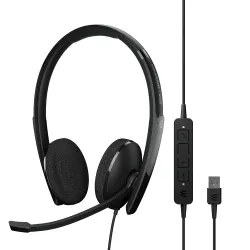Best Price Server Hard Disk in India | CISCO, Dell, HP, IBM,| SAS, SATA HDD
What is Server Hard Disk?
A server hard disk is a type of data storage device that is designed specifically for use in server systems. Servers are powerful computers that are used to store, manage, and distribute data to other computers on a network. Server hard disks are typically larger and more durable than the hard disks used in personal computers, as they need to be able to store and retrieve large amounts of data quickly and reliably.
Server hard disks can come in different types, including traditional hard disk drives (HDDs) and solid-state drives (SSDs). HDDs use spinning disks and a read/write head to access and store data, while SSDs use flash memory to store data. SSDs are generally faster and more reliable than HDDs, but they can also be more expensive.
In addition to storage capacity and speed, server hard disks may also have additional features such as RAID (redundant array of independent disks) configurations for improved data protection, encryption for enhanced security, and advanced firmware to optimize performance and durability.
Server Hard Disk Storage and Capacity
If you're asking about server hard disk storage and capacity, there are many different sizes and configurations available depending on your specific needs and requirements. Some of the most common options include:
Hard Disk Drive (HDD) - These are traditional mechanical hard drives that use spinning disks to store data. They are available in a wide range of capacities ranging from 16TB, 12TB, 8TB, 4TB, 2TB, 1.8TB, 1.2TB, 1TB, 900GB, 600GB & 300GB hundred gigabytes to multiple terabytes.
Solid State Drive (SSD) - These drives use flash memory to store data and are generally faster and more reliable than traditional HDDs. They are also available in a range of capacities. Form factor (2.5 Inch and 3.5 Inch), spindle speeds( 10K RPM, 15K RPM,7.2K RPM) you need, here are many hard drive options available for your server at Xfirbish.
Redundant Array of Independent Disks (RAID) - RAID configurations involve combining multiple hard drives into a single logical unit for improved performance, reliability, or both. Different RAID levels offer different trade-offs between performance, capacity, and redundancy.
Network-Attached Storage (NAS) - NAS devices are specialized servers designed for storing and sharing files over a network. They typically include multiple hard drives and can be configured for a wide range of capacities and performance levels.
When choosing a server hard disk storage and capacity configuration, it's important to consider your specific needs for performance, capacity, reliability, and cost. A qualified IT professional can help you determine the best options for your organization.
There are many brands of server hard disks available on the market.
Apple
Cisco
Compaq
Dell
Dell EqualLogic
EMC
Fujitsu
HGST
Hitachi
HP
Huawei
IBM
Intel
Maxtor
NetApp
QUANTUM
Samsung
Seagate
SUN Microsystems
SUNON
TOSHIBA
Western Digital
SUN
When selecting a server hard disk, it is important to consider factors such as the capacity, speed spindle speeds( 10K RPM, 15K RPM,7.2K RPM) you need, there are many hard drive options available for your server at Xfirbish, reliability, and durability of the disk, as well as any specific compatibility requirements with your server hardware or software. Additionally, it is always recommended to consult with a qualified IT professional or manufacturer's documentation to ensure that you are selecting a compatible and reliable hard disk for your server.
Features of Server Hard Drives?
Server hard drives are designed to provide high performance, reliability, and durability for demanding server applications. Here are some of the key features that you might find in the server hard drives:
High storage capacity:
Server hard drives are available in various storage capacities, ranging from a few hundred gigabytes to multiple terabytes. This allows them to store large amounts of data in a single drive, which is essential for server applications that need to store and manage large amounts of data.
Fast data access:
Server hard drives are designed to provide fast data access, which is essential for applications such as databases, web servers, and virtual machines. They are designed to provide low latency and high data transfer rates, which allows them to quickly retrieve and transfer data.
RAID configurations:
Server hard drives often support RAID (redundant array of independent disks) configurations, which allow multiple hard drives to be combined into a single storage unit. RAID configurations can improve performance, provide fault tolerance, and help protect against data loss in the event of a hard drive failure.
Advanced firmware:
Server hard drives often come with advanced firmware that can optimize performance and reliability. This firmware can include features such as error correction, self-monitoring, and self-healing capabilities, which can help to prevent data loss and minimize downtime.
Encryption:
Server hard drives may support encryption, which can help to protect data from unauthorized access. Encryption can be especially important for servers that store sensitive or confidential data, such as financial data or personal information.
Durability:
Server hard drives are designed to be more durable than consumer-grade hard drives. They are built to withstand the rigors of constant use, with features such as shock resistance, vibration resistance, and temperature tolerance. This helps to ensure that server hard drives can operate reliably over extended periods of time.
In summary, server hard drives are designed to provide high performance, reliability, and durability for demanding server applications. They come with a range of features designed to optimize performance and protect data, including high storage capacity, fast data access, RAID configurations, advanced firmware, encryption, and durability features.
Servers typically use enterprise-grade hard disks, which are designed specifically for use in high-performance, high-availability environments such as data centers and server rooms. These hard disks are generally more durable, and reliable, and have higher capacity than consumer-grade hard disks, which are designed for personal computers and other low-intensity applications.Enterprise hard disks are available in both traditional spinning disk (HDD) and solid-state drive (SSD) form factors, with SSDs becoming increasingly popular due to their faster performance and lower power consumption. Additionally, many servers use a RAID (redundant array of independent disks) configuration, which involves combining multiple hard disks into a single logical volume for improved performance, data redundancy, and fault tolerance.
The best hard disk for a server depends on various factors, including the specific requirements of the server's workload and the budget. However, in general, enterprise-grade solid-state drives (SSDs) are considered to be the best hard disks for servers, especially for high-performance applications that require low latency and fast data access.SSDs offer faster read and write speeds than traditional spinning disk hard drives (HDDs), lower power consumption, and improved durability due to the absence of moving parts. Some popular brands of enterprise SSDs include Intel, Samsung, Toshiba, and Western Digital.
The lifespan of a server hard disk drive (HDD) can vary widely depending on a number of factors, including the specific model and brand of the drive, the frequency and intensity of use, and the operating conditions in the server environment.In general, enterprise-grade HDDs are designed to be more durable and reliable than consumer-grade drives, with manufacturers typically providing a rated MTBF (mean time between failures) of around 1-2 million hours. However, this is just an estimate and actual lifetimes can be shorter or longer.
Servers require specialized hard disks that are designed for use in high-performance, high-availability environments. These hard disks, known as server hard disks or enterprise-grade hard disks, offer several key advantages over consumer-grade drives.One of the primary benefits of server hard disks is their enhanced reliability and durability. Enterprise-grade drives are built with higher-quality components and are designed to operate around the clock, with advanced features such as error-correcting code (ECC) and built-in redundancy to protect against data loss.







